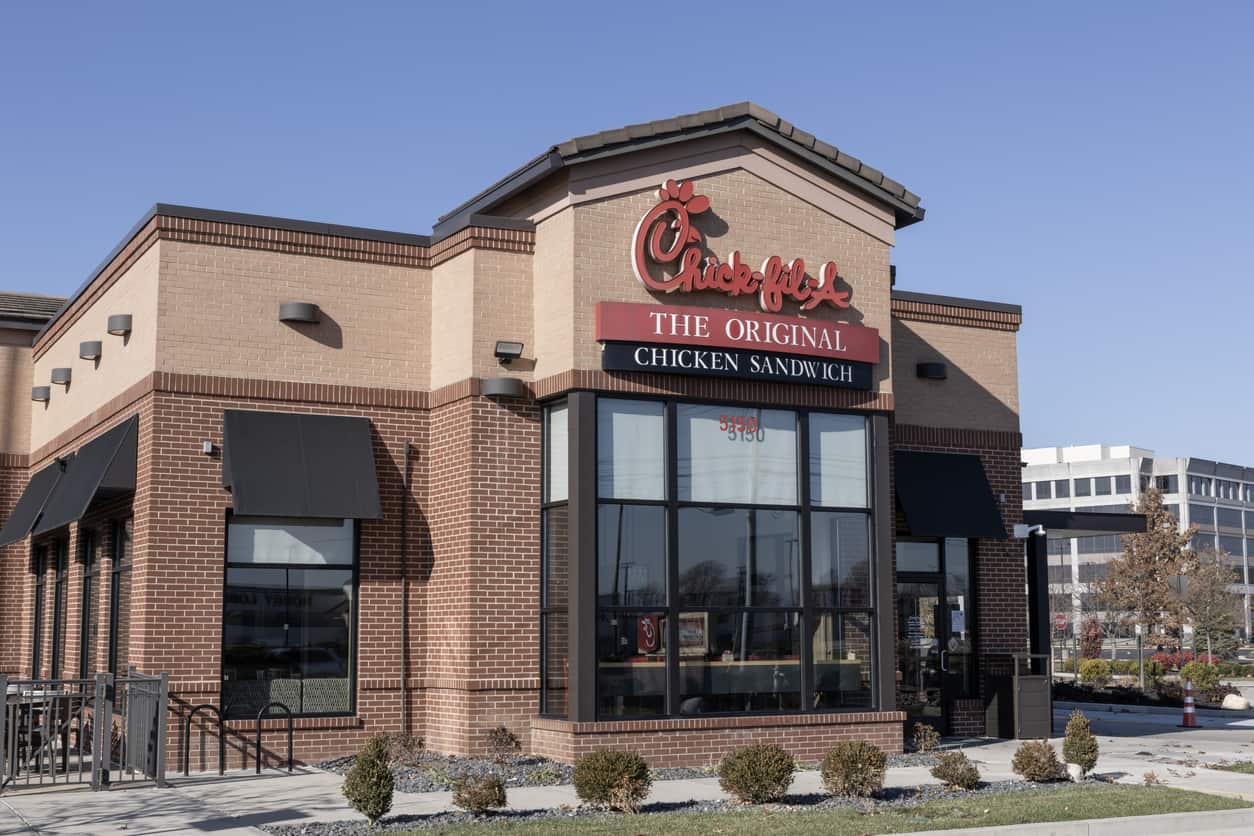
iStock.com/jetcityimage
Chick-fil-A Will Have No More Antibiotic-Free Chicken
March 25, 2024
Chick-fil-A, the popular fast-food chain, recently declared a shift in its chicken sourcing strategy. Beginning this spring, the company will transition from antibiotic-free chicken to a new standard known as No Antibiotics Important To Human Medicine (NAIHM). This move comes as a response to supply concerns.
The change entails a departure from the previous practice of No Antibiotics Ever (NAE), which ensured that no antibiotics were administered to the animals. NAIHM, on the other hand, “restricts the use of those antibiotics that are important to human medicine and commonly used to treat people, and allows use of animal antibiotics only if the animal and those around it were to become sick,” according to Chick-fil-A’s website.
Chick-fil-A had initially adopted antibiotic-free chicken in 2014 and successfully implemented it across all its outlets by 2019. However, as the company looked ahead, ensuring a consistent supply of high-quality chicken became a challenge. This prompted the decision to revise the sourcing standards.
This update was communicated to Chick-fil-A’s customers via various channels, including its mobile app. It reflects the company’s commitment to maintaining its reputation for serving quality chicken while adapting to evolving market dynamics.
The decision by Chick-fil-A follows similar moves by other food establishments. For instance, Panera Bread recently adjusted its antibiotic-free policy for pork and turkey products, citing limitations in the supply chain.
This transition in sourcing practices highlights the complex considerations that fast-food chains must navigate to meet consumer expectations while ensuring a steady supply of ingredients. Chick-fil-A’s shift to NAIHM underscores the balancing act between maintaining quality standards and addressing logistical challenges in the food industry.
In a broader context, Tyson Foods, a major player in the poultry industry, also announced a similar reversal last summer. After previously eliminating antibiotics from its chicken supply chain in 2017, Tyson Foods reintroduced certain antibiotics, reflecting industry-wide dynamics and supply chain complexities.
Overall, Chick-fil-A’s decision reflects a strategic adjustment aimed at sustaining its commitment to quality while adapting to market realities. As consumers continue to prioritize transparency and sustainability in food sourcing, such transitions are likely to remain significant in the fast-food landscape.
Recent News
Peloton CEO Steps Down and Layoffs Begin
Peloton, the popular fitness technology company, has announced significant changes in its leadership and organizational structure.
California Restaurants Must Start Eliminating Special Surcharges
Starting July 1, California is changing the game for restaurant bills.
T-Mobile Now Owns Ryan Reynolds-Backed Mint Mobile
The deal is worth upwards of $1.35 billion.
Chipotle Is Giving Away Over $1 Million in Burritos to Healthcare Workers
In acknowledgment of the tireless contributions of healthcare workers, Chipotle Mexican Grill has announced a notable gesture of appreciation: the distribution of 100,000 free burrito e-cards.

